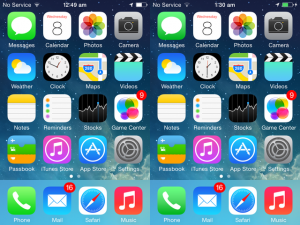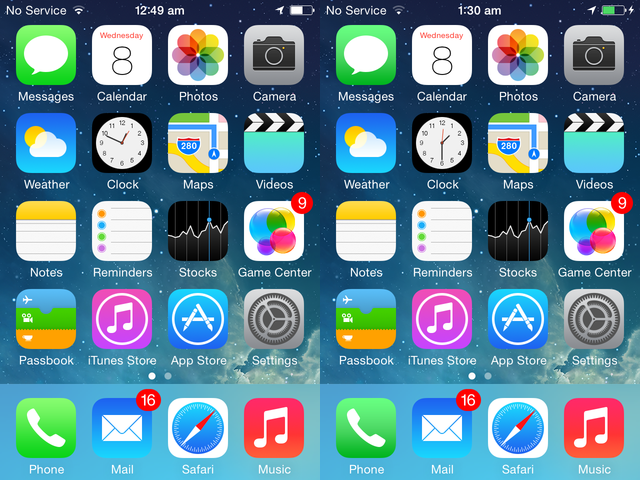The latest stats from Mixpanel have revealed that adoption of iOS is now just below 90% whereas Android KitKat (4.4) remains well under 10%.
 As a result of how Apple runs its platform, it is very easy for users to upgrade once a new version of the operation system is released, but as Mixpanel’s data shows, the same is not true for Android.
As a result of how Apple runs its platform, it is very easy for users to upgrade once a new version of the operation system is released, but as Mixpanel’s data shows, the same is not true for Android.
Fragmentation has been an issue with Android for quite some time, since when an update is put out by Google, there are many factors that determine when that update will make its way to different smartphones.
Even though KitKat has not been around as long as iOS 7, as it was released in late October compared to mid-September 2013 for iOS 7, that does not account for the massive difference in adoption.
Instead, Apple users not only have access to updates as soon as they are released, but they also update quickly. Already, iOS 7.1 (released March 10, 2014) is accounting for 31 percent of visits tracked by Mixpanel.
One of the other major differences between iOS and Android is that even if an Apple customer does not update immediately, they do stay somewhat recent in their operating system choice. The majority of the non-iOS 7 users are at least using the previous OS version, iOS 6. This is much different than Android, where the second most popular version of the OS was released in February 2011.
This poses a major issue for developers, although having a fragmented operating system has contributed to the low price of many Android devices.
Mixpanel’s data backs up the fact that if a developer is working on an application for iOS, they can be fairly certain that updating the app for the latest OS version is the best idea. Whereas on Android, if apps were updated with KitKat in mind, they would only be optimized for 8-10% of the users.
Question – Do you think Android fragmentation is a major issue?
Summary: Based upon data from Mixpanel, iOS 7 is now reaching as much as 90% adoption. This is in stark contrast to Android 4.4 KitKat which has struggled to hit 10% adoption. The fragmentation of Android continues to be a major issue.
image credit: iphonehacks


